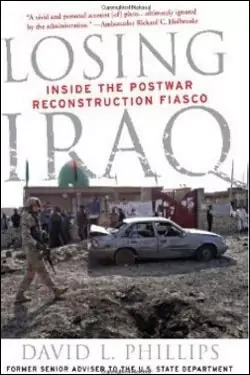
Losing Iraq
Inside the Postwar Reconstruction Fiasco

- Book
- Foreign policy analyses written by CFR fellows and published by the trade presses, academic presses, or the Council on Foreign Relations Press.
A disenchanted government insider’s take on the planning that did go on for postwar Iraq that the Bush administration willfully ignored.
According to conventional wisdom, Iraq has suffered because the Bush administration had no plan for reconstruction. That’s not the case; the State Department’s Future of Iraq group planned out the situation carefully and extensively, and Middle East expert David Phillips was part of this group. White House ideologues and imprudent Pentagon officials decided simply to ignore those plans. The administration only listened to what it wanted to hear.
More on:
Losing Iraq doesn’t just criticize the policies of unilateralism, preemption, and possible deception that launched the war; it documents the process of returning sovereignty to an occupied Iraq. Unique, as well, are Phillips’s personal accounts of dissension within the administration.
The problems encountered in Iraq are troubling not only in themselves but also because they bode ill for other nation-building efforts in which the United States may become mired through this administration’s doctrine of unilateral, preemptive war. Losing Iraq looks into the future of America’s foreign policy with a clear-eyed critique of the problems that loom ahead.
More on:
 Online Store
Online Store